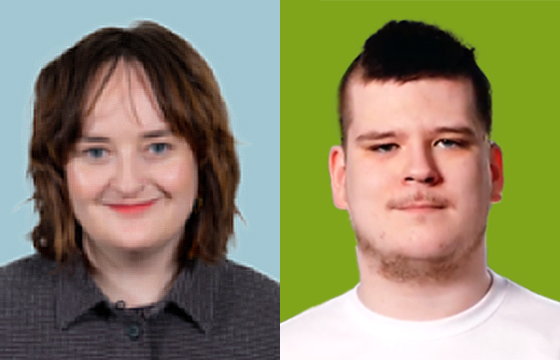Not enough has been done to enable people with learning difficulties to live full, safe, happy and loving lives
While Scotland no longer has a universal approach to confining people with learning disabilities in institutions, many people with learning disabilities still face significant barriers to realising their human rights and being able to live the lives they want. These problems remain unchallenged in part because of the invisibility of this population and the dehumanisation they face.
Despite this, people with learning disabilities are clear they will have their views and voices heard – and it's time we all listened.
To amplify the views of people with learning disabilities, SCLD has published a new report: 'The State of Our Rights - The human rights issues facing people with learning disabilities in Scotland (2021–2023) and a route map for change'. This report builds on SCLD's submission to the UK's Universal Periodic Review at the United Nations in the summer of 2022.
‘The State of Our Rights’ highlights that while some recent advancements have supported the realisation of the human rights of people with learning disabilities in Scotland, not enough has been done to enable them to live full, safe, happy and loving lives. Critically, the report highlights actions needed across several areas, including legislative and policy reform, improvement in disaggregated data collection and awareness raising.
The report includes 33 recommendations and a route map for change which SCLD and our partners and stakeholders believe, if implemented, will create the necessary conditions to deliver the much-needed transformative change for people with learning disabilities in Scotland.
Central to this is ensuring that learning disability is removed from the definition of ‘mental disorder’ in the Mental Health Care and Treatment (Scotland) Act 2003. SCLD believes that unjustly denying the liberty of people with learning disabilities under this act has set the culture and standard for the consistently poor treatment and horrifying experiences of people with learning disabilities in Scotland today. This includes violations of their right to life, barriers to accessing justice, and the use of restrictive practices, as well as being denied the opportunity to make decisions for themselves.
To address these issues, Scotland must ensure the rights of people with learning disabilities, and of all other disabled people, detailed in the United Nations Convention on the Rights of Persons with Disabilities (UNCRPD), are incorporated into domestic law in Scotland as part of the new Scottish Human Rights Bill.
By incorporating the UNCRPD, Scotland will make clear and incontrovertible statement that it does not accept violations of the human rights of people with learning disabilities. Furthermore, incorporation will allow for other positive developments in Scotland, including enhanced support for people with learning disabilities to realise their human rights in the forthcoming Learning Disability, Autism and Neurodiversity Bill.
Aaron Hume, a human rights defender who has worked alongside SCLD since 2020, welcomed the new report and said: “People with learning disability and/or autism currently have their liberty taken away just because they have a label which says they have a ‘mental disorder’ under Scotland’s current law.
"This means people with learning disabilities can be detained when they are just having a bad time of it and need some reassurance that they going be OK. People with learning disabilities are clear that putting people into a secure unit for 10 years, or more, is unacceptable.
"Scotland can and should change this. We all need to work together to improve people with learning disabilities lives for the better. We have a chance to do this though the new Human Rights Bill for Scotland, Mental Health Law Reform and the Learning Disability, Autism and Neurodiversity Bill.”
To support organisations and people with learning disabilities to engage in the consultation on the new Human Rights Bill for Scotland, SCLD has also published a range of resources alongside the new report, including a briefing for organisations and easy-read briefings available on the SCLD website.
Please do not hesitate to contact SCLD via [email protected] if you have any questions about the report and its recommendations.
Oonagh Brown is human rights programme lead at the Scottish Commission for People with Learning Disabilities (SCLD); Aaron Hume is a human rights defender who has worked alongside SCLD since 2020.







